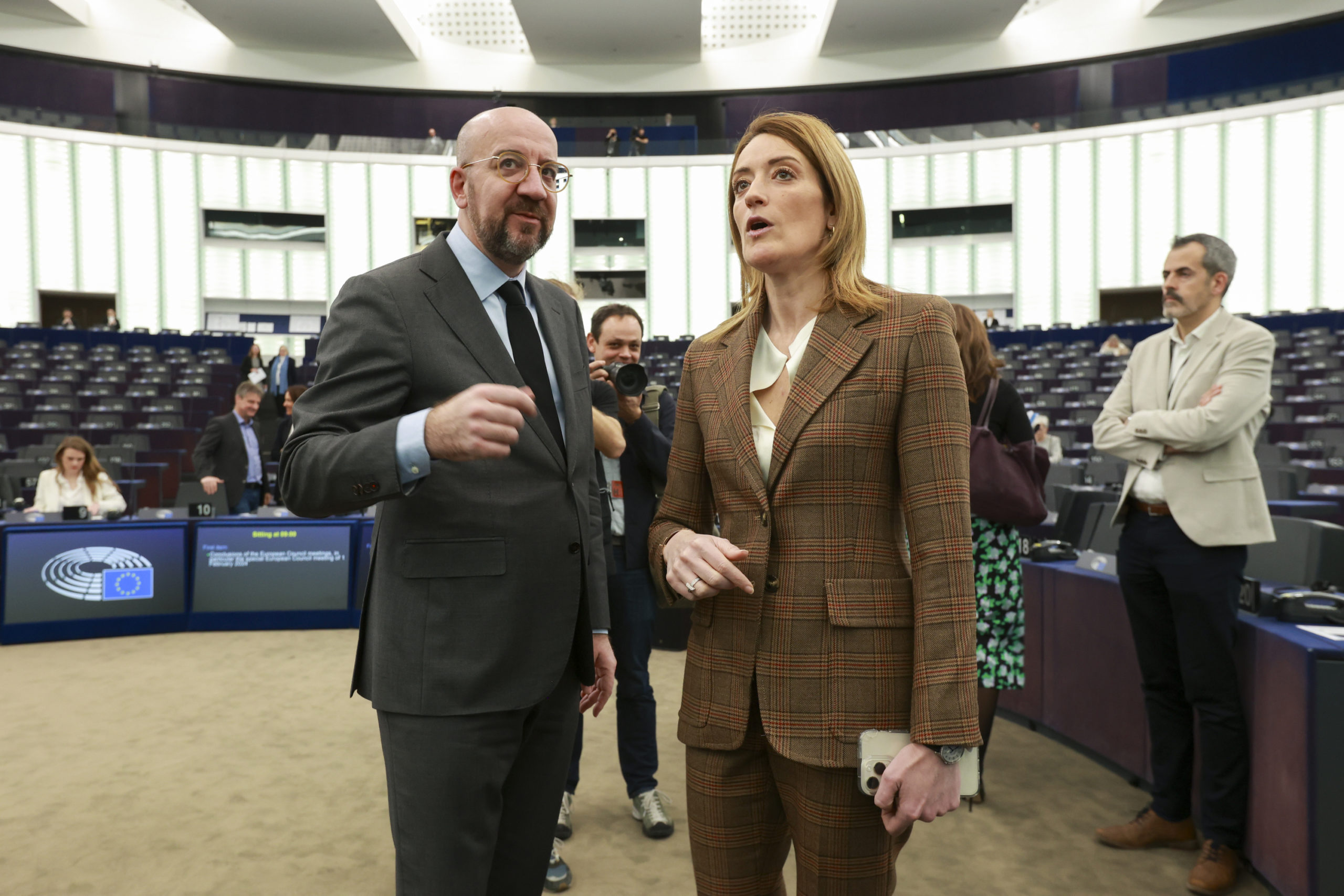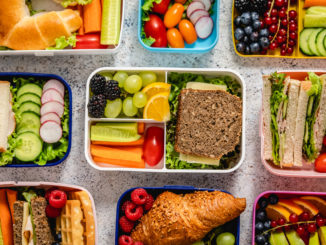
EU plans to slash the use and risk of pesticides have fallen on the back of farmers’ protests, which have dominated both headlines and the political agenda in recent days. Meanwhile there are plenty of other discussions cooking in Brussels which could have far reaching consequences for the future direction of the sector. Natasha Foote brings you a run down of the latest from Strasbourg and what you should watch this week.
Pesticide reduction plan succumbs to presSURe
Hopes are dashed for the EU’s plans to slash the use and risk of pesticides by half by 2030.
Commission President Ursula von der Leyen put an end to the sustainable use of pesticides regulation (SUR) once and for all on Tuesday (6 February).
Stressing that the SUR has become a “symbol of polarisation”, von der Leyen said during the plenary session in Strasbourg on Tuesday that she would recommend for the college to withdraw the proposal.
“Of course the topic stays, [but] to move forward, more dialogue and a different approach is needed,” she said, adding that on this basis the Commission can make a new proposal with more “matured” content and with all the stakeholders together.
It seemed it was game over for the file after it was rejected outright by the European Parliament back in November. But, against the odds, work was continuing – albeit slowly – over in the Council, with the Belgian Presidency putting together a SURvival strategy in efforts to save some remnants of the file.
Asked by ARC, the Belgian Presidency said that the efforts from their side had not been a waste of time, but acknowledged it was “politically very complicated” from both lawmakers’ perspectives. As such, the move did not come as a surprise, the representative said.
“The goal was to go as far as we could,” he said, adding that the focus now is on pushing the final files over the finish line, including that on new genomic techniques (see below for details).
Commission to scrap EU pesticide reduction plan amid presSURe from farmers
New GM-nOs…or yes?
This week will see a key vote on the EU’s controversial plans to loosen the rules around the use of new genetic technologies as the European Parliament gears up to seal their position on the matter on Wednesday (7 February).
The new genetic techniques (NGTs) – also known as gene editing or new GMOs – describes several scientific methods used to alter genomes and genetically engineer certain traits into plants.
After the file passed its first Parliamentary hurdle back in January, the position will now face a vote in the full house on the backdrop of hundreds of citizens, scientists and lobbyists mobilising in front of the Parliament both for and against the technology.
Key amendments to watch include one proposing a ban on patents on NGTs, which has proven a particularly sticky point for both the Parliament and its fellow lawmakers over in the Council after the Commission chose not to open the pandora’s box of patents in its original proposal.
According to sources, the issue is currently fertile ground for fierce lobbying – but, if it passes, could help spell the end of the file.
This is because the issue remains a major impasse between member states – and, according to one diplomat, a hard red line for the biggest swing vote in the mix, Poland.
With 8% of the vote, a greenlight from the central European country would be enough to push the proposal over the finish line. This means Poland has been the focal point of efforts to push the file over the finish line.
However, Poland shows no signs of budging any time soon, according to sources. Meanwhile, one diplomat told ARC that, in the event that both lawmakers agree to include a ban on patents on NGT plants, the Commission has said it will “withdraw the whole file”.
“So we already know that […] the Commission will be fighting against this with all its powers,” the diplomat added.
With the fall of the SUR, the Belgian Presidency will now redouble efforts on the NGT file, according to a representative for the Presidency. While they acknowledge that patents remain a “huge sticking point”, the file has now been tabled for discussion at a COREPER meeting on Wednesday.
This is because the Presidency is looking for “political guidance” on the issue to help guide work at the technical level.
Asked whether they saw the possibility of an agreement on Wednesday, the representative was hopeful that it can help “lead to something more” and progress the file as far as possible.
It will also “definitely help if the Parliament votes its position,” the Presidency previously stated, adding that it will help spur them on to try their “utmost” to move member states’ positions.
Plan to Loosen EU Rules on Genetic Technologies Passes First Parliament Hurdle
2040 climate targets
The European Commission will present its proposal for a 2040 greenhouse gas reduction target on Tuesday (6 February).
The proposal details the EU’s path to reducing its greenhouse gas (GHG) emissions by 90% and achieving climate neutrality by 2050 – and the agricultural sector was supposed to be a core focus, according to leaked drafts.
Earlier drafts referenced a 30% cut in nitrogen and methane gases by 2040 – but these were since scrapped in a later version of the document, according to the Financial Times, who situated the move on the backdrop of the recent farmers’ protests.
Original drafts also referenced low-cost solutions for agriculture, including biomethane from manure and the optimisation of fertiliser application through precision farming, and emphasised the need to develop carbon pricing as a way to “create business opportunities for a more sustainable agrifood value chain”.
European Vice President of Food?
Discussions on the possibility of a European Vice President of Food in the next Commission mandate kicked up a notch during an event last week, spearheaded by FoodDrinkEurope, the umbrella group representing the European food and drink industry.
An idea previously floated by civil society groups, the industry association has placed an EVP of food high on its wish list, arguing it is needed as food is “too low” in the EU’s priorities and is needed to promote a food systems approach.
The Vice-Presidents act on behalf of the President and coordinate work in their area of responsibility, together with several Commissioners. Priority projects are defined to help ensure that the College works together in a close and flexible manner.
The event comes on the back of news that the Commission is currently modelling options for potential changes to college makeup for the next mandate, with agriculture likely considered as part of this redrawing of lines. The topic is also likely to feature as a discussion point in the Commission’s ongoing strategic dialogue.
However, Commission representative Alexandra Nikolakopoulou stopped short of backing the idea, instead emphasising during the event that any structural changes or administrative changes must “reinforce necessary collaboration”. She added that structures should be reflected at “all levels of governance,” pointing out that discussions can get fragmented once they reach the Parliament and the Council.
However, others in the Commission seem to be warming to the idea, with several Commission officials quietly voicing tentative support for the move over the past few weeks in the corridors of Brussels.
More
Commission to scrap EU pesticide reduction plan amid presSURe from farmers
Leak – Belgian Presidency’s SUR-prising Hope for Pesticides Regulation
Under Pressure Commission Grants CAP Derogation, Extends Ukraine Import Liberalisation





